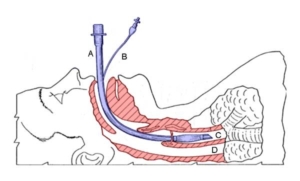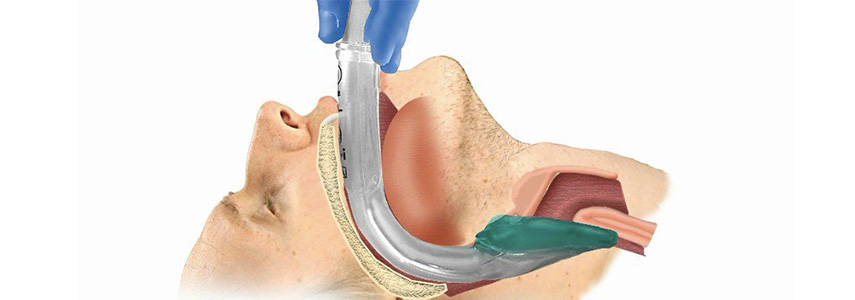During long-term surgery it is possible that the patient undergoing total anesthesia needs to be supported in breathing by inserting a tracheal tube into the airways.
Why is the tracheal tube inserted?
The condition of total anesthesia, induced through the injection of anesthetic, leads the patient to a state of unconsciousness necessary to completely eliminate the sensation of pain. In this state the patient has reduced autonomy and must be helped in breathing through artificial ventilation.
The tracheal tube also has the function of isolating the lungs from saliva or gastroesophageal juices, separating the respiratory tract from the digestive tract.
Can the tracheal tube cause damage to the oral cavity?
During anesthesia, the patient may have involuntary muscle spasms, movements that can move the tracheal tube and make it enter abrupt contact with the tissues of the oral cavity.
The tissues can therefore become inflamed or be subjected to small lesions, the consequence is that in the post-operative phase, the patient may experience mild sore throats and difficulty in swallowing, symptoms that disappear within a few days.
Can there be tooth damage?
 There are special cases where intubation can lead to tooth loss. In most cases this possibility is determined in the presence of already compromised dental elements.
There are special cases where intubation can lead to tooth loss. In most cases this possibility is determined in the presence of already compromised dental elements.
The real danger is the fact that the loss of teeth can occur during surgery, while the patient is sedated, with the possibility that the teeth may be swallowed or may obstruct the respiratory tract.
Teeth that move or whose stability is definitely precarious, due to the presence of periodontitis or other diseases, in contact with the stresses of the tracheal tube could fall.
To preserve your natural teeth and not endanger your health, it is always advisable to set up a dental check-up before undergoing surgery that includes the insertion of a tracheal tube.
Checking the health of the oral cavity and teeth before surgery could avoid further complications. A complete check-up can identify any pathologies or clinical conditions that must necessarily be resolved before intubation.
The presence of dental prostheses furniture, for example, could, following intubation, create complications even for the intervention itself.
Teeth particularly worn instead, subjected to the stresses of the tube inserted into the trachea, they could suffer enamel lesions, with consequent micro-cracks.
These are just some examples of apparently negligible oral conditions in the oral cavity, which can become complicated following intubation, a preventive check is always a guarantee for health.
















